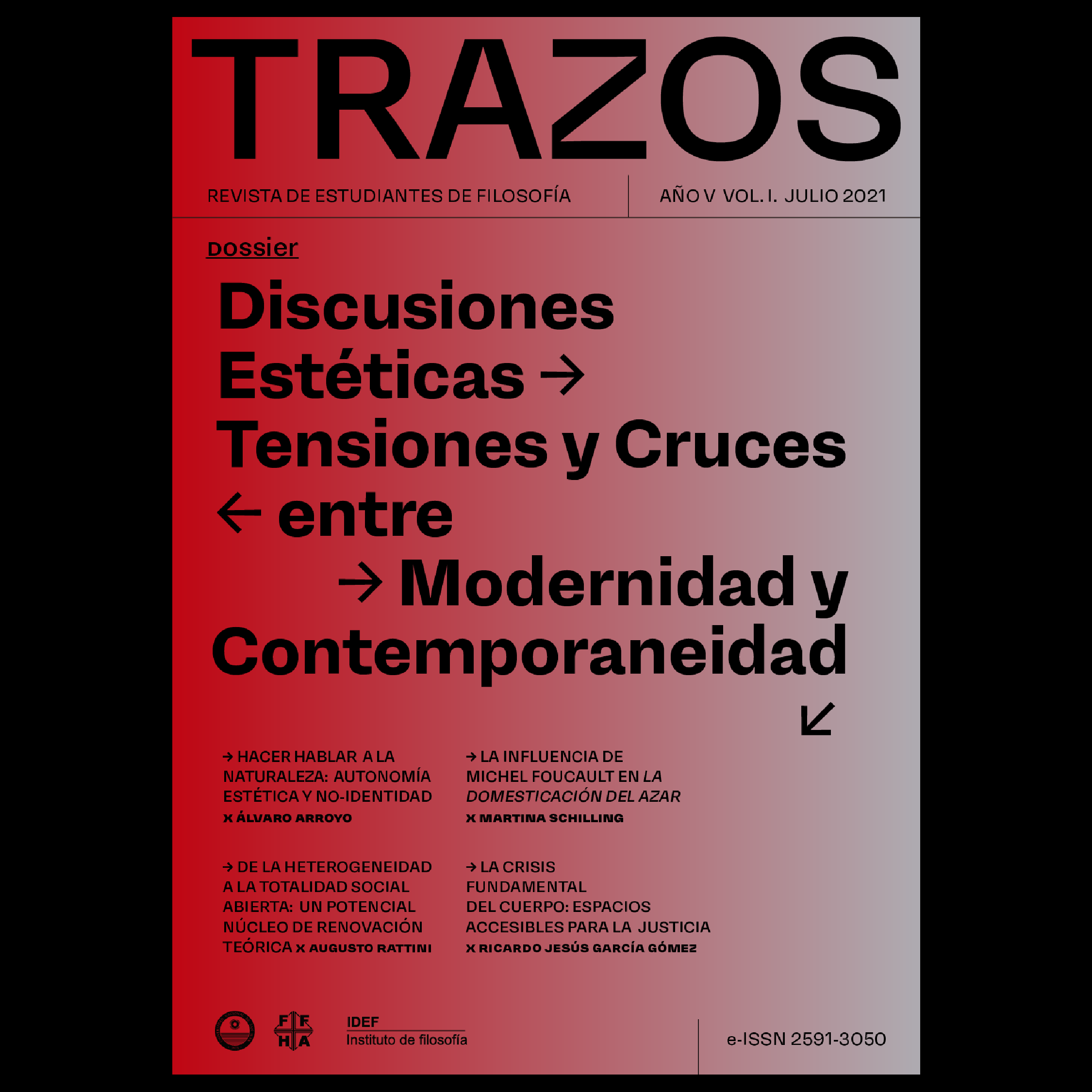THE FUNDAMENTAL CRISIS OF THE BODY: ACCESIBLE SPACES FOR JUSTICE
Main Article Content
Abstract
The flowers I have planted on the sidewalk have withered. The petals they began to turn black and the sun ended up burning my hopes. Among the wet earth I left some tears as a reminder of what I am, but… what am I really? Through this space I will try to reflect on the crisis of existence that allows the reinterpretation of justice. allow us This reflection leads us to the problem of the human and the other, which may well being the non-human and its fragmented derivations in the various social apparatuses that capitalize on the body.
Article Details
How to Cite
García Gómez, R. J. (2021). THE FUNDAMENTAL CRISIS OF THE BODY: ACCESIBLE SPACES FOR JUSTICE. TRAZOS – Revista De Estudiantes De Filosofía, 1(5), 55-61. Retrieved from https://memoriaeuropae.unsj.edu.ar/index.php/trazos/article/view/718
Section
Ensayos filosóficos

This work is licensed under a Creative Commons Attribution-NonCommercial-ShareAlike 4.0 International License.
References
Berardi, F. (2003). La fábrica de la infelicidad. España: Trafiantes de Sueños (Trad. Patricia Amigot Leatxe y Manuel Aguilar Hendrickson).
Guattari, F. (2008). La ciudad subjetiva y post-mediática. La polis reinventada.
Colombia: Fundación Comunidad (Trad. Ernesto Hernández B. y Carlos Enrique Restrepo).
Nagel, T. (2000). Otras mentes. España: Editorial Gedisa (Trad. Sandra Girón).
Rawls, J. (2002). La justicia como equidad. Una reformulación. España: Editorial Paidós (Trad. Andrés de Francisco).
Guattari, F. (2008). La ciudad subjetiva y post-mediática. La polis reinventada.
Colombia: Fundación Comunidad (Trad. Ernesto Hernández B. y Carlos Enrique Restrepo).
Nagel, T. (2000). Otras mentes. España: Editorial Gedisa (Trad. Sandra Girón).
Rawls, J. (2002). La justicia como equidad. Una reformulación. España: Editorial Paidós (Trad. Andrés de Francisco).

